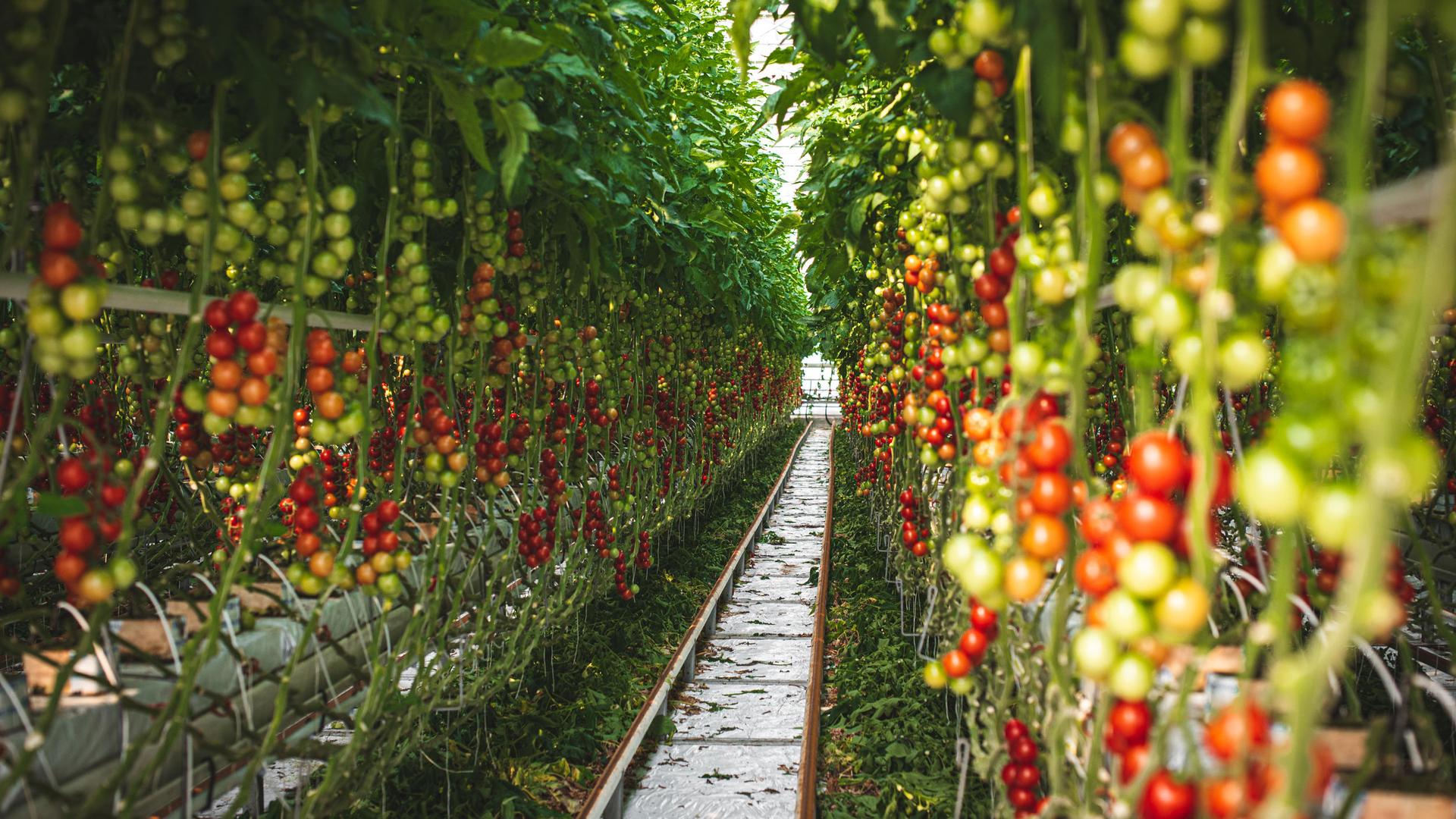At Ráječek Farm in the southern Czech Republic, bright, red hydroponic tomato plants tower more than 10 feet tall inside greenhouses.
The Sklenář family has worked the land on Ráječek Farm for four generations. The family once lost the farm to the state under communist rule. But several years after the Czech Republic switched to a market economy, the family regained control of the farm and launched a successful business growing hydroponic tomatoes.
“My parents had to reinvent the whole business again because if they did the same [farming] model as our grandparents, it wouldn’t have been economically sustainable,” said Matěj Sklenář, 28, the head agronomist at Ráječek Farm.
But last year, Russia’s invasion of Ukraine — a war aimed at pulling a large swath of Eastern Europe back into Russia’s influence — once again disrupted the growing season on Ráječek Farm.
Some fertilizers Sklenář uses on his hydroponic tomatoes come from Russia. But last year, those fertilizers became 10 times more expensive.
The drastic rise in fertilizer prices is a huge problem for hydroponic farmers because they mostly don’t use organic fertilizers like compost or manure.
“If you grow in soil and you don’t add fertilizer you can still do a season with decreased yield, but with hydroponics, if you don’t have fertilizers, it’s just not possible to grow anything,” Sklenář said.
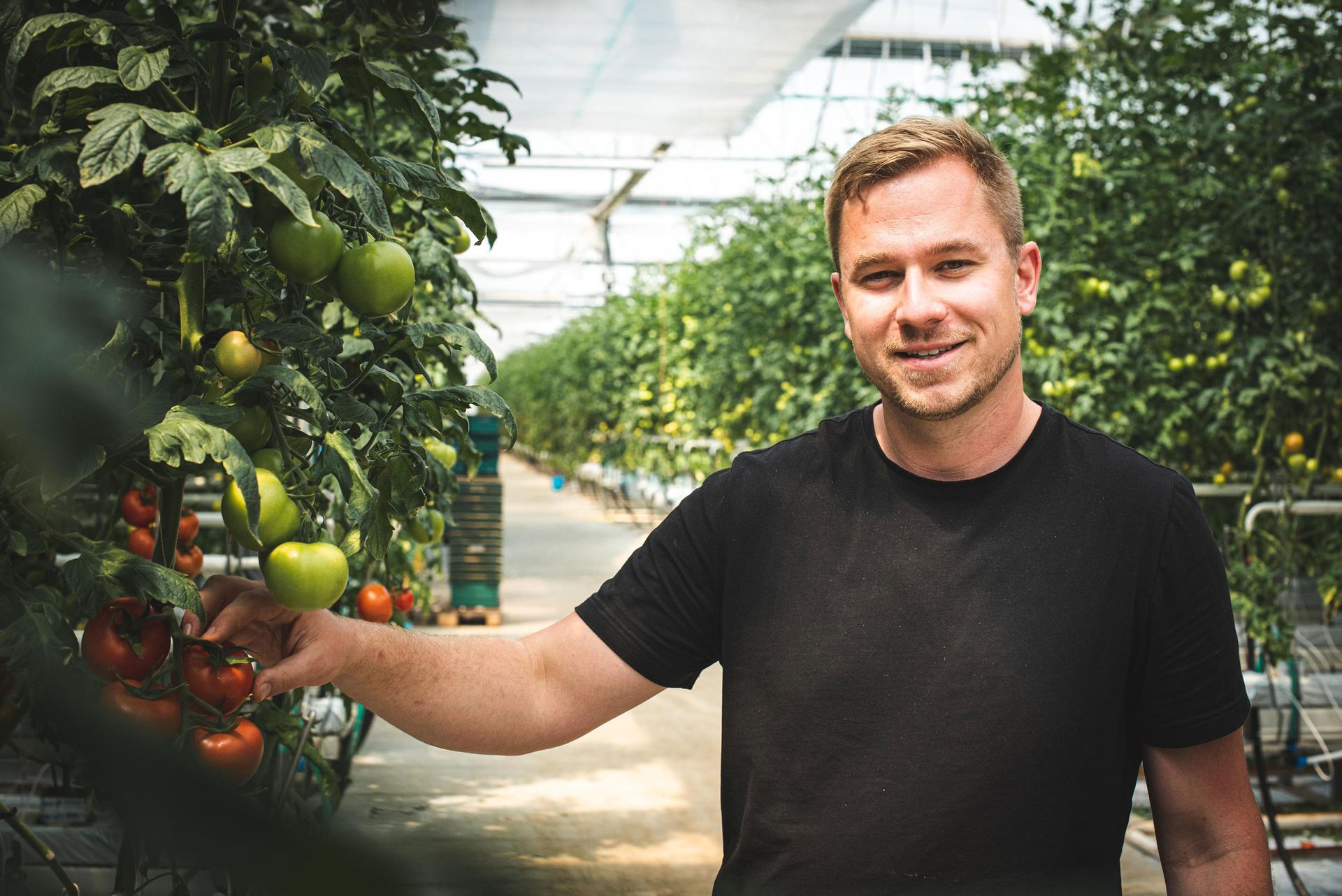
Fertilizer is used by most commercial farming operations. And industrially produced fertilizers are often credited with providing sufficient yields to feed a planet with a growing population that is projected to have reached 8 billion people.
Russia is the world’s largest producer of fertilizers. There are no sanctions against Russian agricultural products, but many shipping companies now refuse to transport Russian products, including fertilizers.
Belarus is also a large fertilizer supplier, but sanctions against Belarus for its participation in the war in Ukraine have also severely limited the country’s contributions to the global fertilizer supply.
These restrictions are causing fertilizer prices to skyrocket.
Common nitrogen fertilizers found at the store are made from ammonia, which is produced from natural gas. Russia used to export a lot of ammonia to the fertilizer market through a pipeline in Ukraine. But that’s been closed since the war started.
Fertilizer companies in Europe also make their own ammonia with natural gas from the European grid. But Europe is trying to wean itself off Russian gas right now, so fuel prices are rising.
“The war caused the price of natural gas to increase, so that’s one of the reasons why fertilizer is so expensive,” Sklenář said.
Last year, major fertilizer companies like Norway’s Yara International had to temporarily curtail production of nitrogen fertilizers because of the war.
Yara was eventually able to reroute their ammonia supply from other sources to increase production speed again. But fertilizer prices remain high, driving up food costs.
“What we’ve seen with the Russian invasion of Ukraine is that, sadly, the situation with food production has turned to the worst,” said Lars Røsæg, deputy chief executive officer of Yara International.
After the war started last year, Sklenář’s farm was hit with a double whammy because many of the workers are Ukrainian. They were back in Ukraine on holiday when the war started, and men who were old enough to serve were no longer allowed to leave the country. Sklenář has struggled to find new workers.
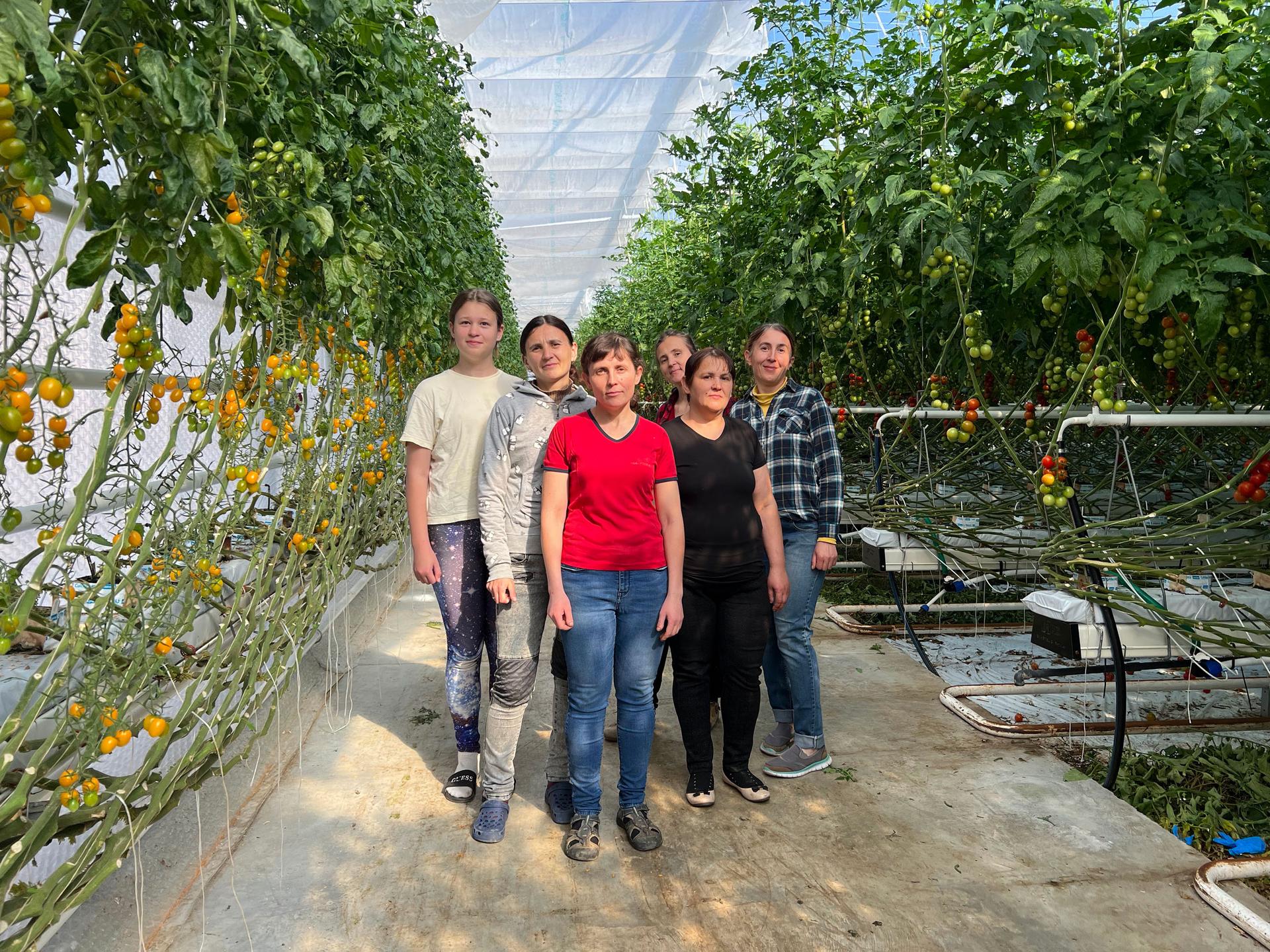
It’s also more expensive to heat his greenhouses now.
“We are pretty sure that this season, the profit will not be as big as past seasons,” Sklenář said.
Fertilizer costs have forced farmers all over Europe to make difficult decisions.
Kieran McEvoy, a farmer south of Dublin who grows wheat and barley, said that he usually buys all of his fertilizer around Christmas. But this time, he’s waiting.
“It’s not really a great plan I suppose, but we’re just hoping maybe there might be a little bit of a relaxation in the price of gas,” McEvoy said.
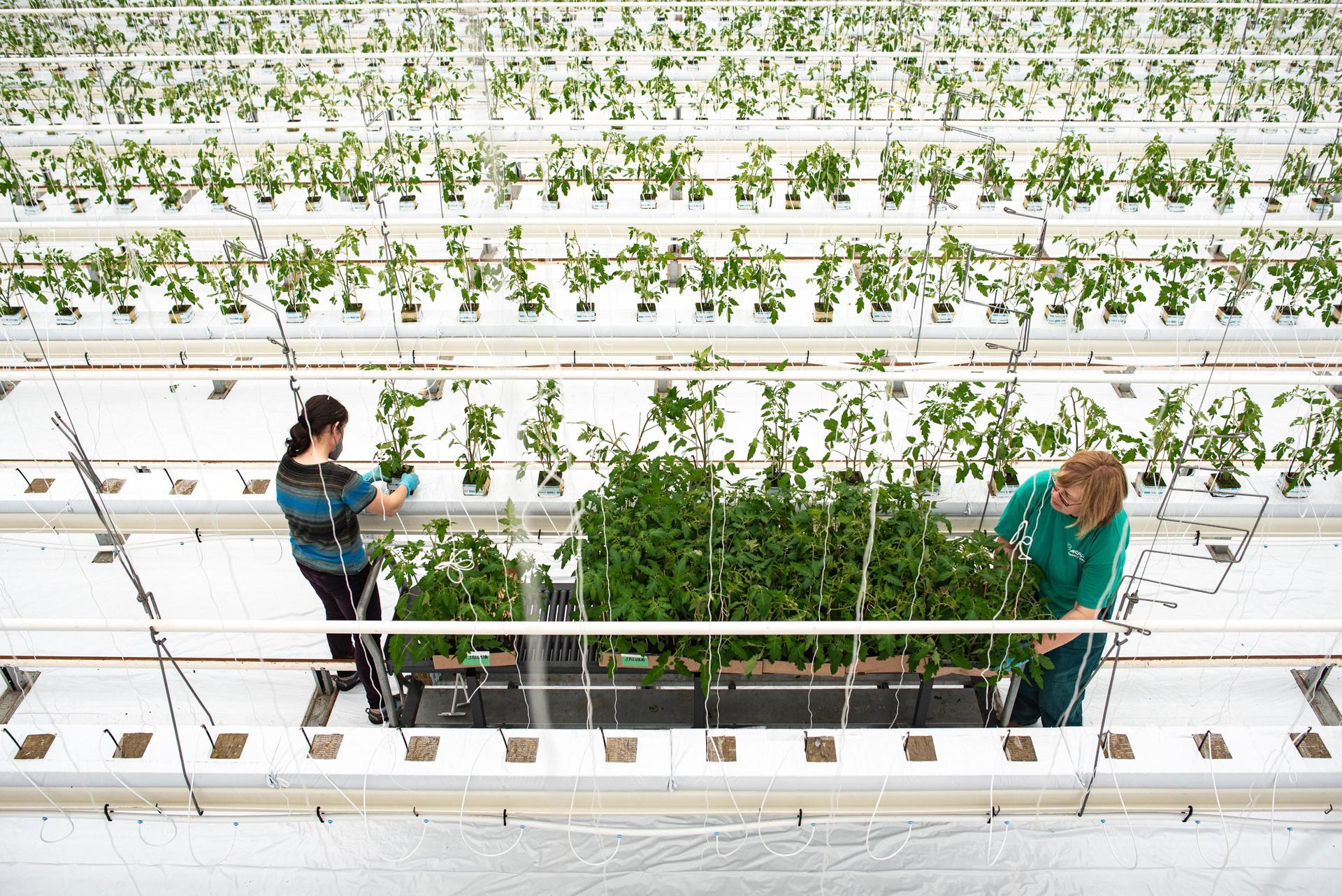
Redistribution of power
The war has made it hard on farmers, but some fertilizer companies have increased their profits. Now, they’re looking to new sources far away from Russia.
Morocco, which holds an estimated 72% of the world’s phosphate — a key ingredient in another common fertilizer — started ramping up production this year.
In the Sahara desert, miners blast the earth with explosives to mine phosphate, sending clouds of red dust barreling across the desert.
Damian Berger, co-founder of Ishtar Analytics, a think tank focusing on North Africa and the Middle East, said that Morocco uses its mighty fertilizer reserves as a tool for soft power by helping countries throughout sub-Saharan Africa increase their food production. Less Russian fertilizer is a potential opportunity for a country like Morocco.
“Morocco has been building up its fertilizer diplomacy and industry for a situation like the one we’re facing right now,” Berger said.
Morocco now plans to open a new fertilizer plant in Brazil, a country that once relied heavily on Russian fertilizer.
Russia also extends its influence in both South America and Africa. But with the war grinding on, Berger said that Morocco is becoming a safer trading partner than Russia.
The shift in the global fertilizer market is giving African countries greater power in global food production at a time when hunger is on the rise.
“There is the potential for Morocco to assume a leading role as the spokesperson of African food security concerns,” Berger said.
The war is also giving more importance to new projects aimed at creating so-called green fertilizers that don’t require fossil fuels to produce.
Yara International, the Norwegian fertilizer company, is currently building a new facility with the capacity to produce green fertilizer that they hope will be ready later this year.
“[Last year] opened the eyes of the whole world to the importance that we accelerate the green transition of the food chain in a way where we reduce the dependency on Russia, so that we can have a sustainable and secure food supply,” Yara International’s Røsæg said.
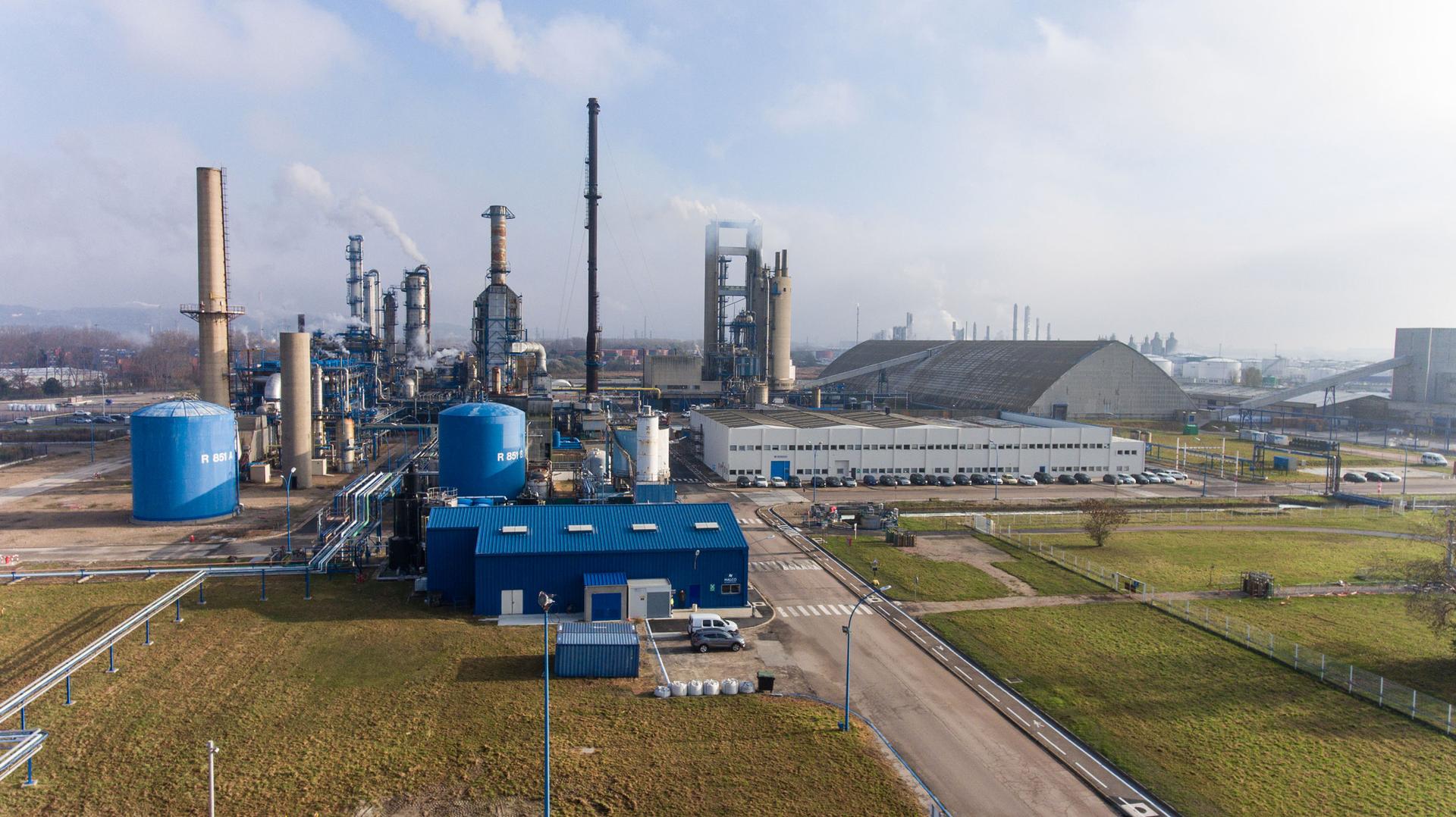
The fertilizer shortage, and other difficulties related to the war in Ukraine, are pushing some farmers to pursue more sustainable practices.
Sklenář in the Czech Republic is now investing in solar panels so he doesn’t have to heat his greenhouses with natural gas.
For Sklenář, the difficulties associated with the war aren’t all negative.
“It hurts a little bit, but it’s worth the pain to get out of this and become independent from Russia,” Sklenář said.
